- Home
- Gerald Durrell
The Stationary Ark
The Stationary Ark Read online
Bello:
hidden talent rediscovered!
Bello is a digital only imprint of Pan Macmillan, established to breathe new life into previously published, classic books.
At Bello we believe in the timeless power of the imagination, of good story, narrative and entertainment and we want to use digital technology to ensure that many more readers can enjoy these books into the future.
We publish in ebook and Print on Demand formats to bring these wonderful books to new audiences.
About Bello:
www.panmacmillan.com/imprints/bello
About the author:
www.panmacmillan.com/author/geralddurrell
By Gerald Durrell
My Family and Other Animals
A Zoo in My Luggage
Birds, Beats and Relatives
Garden of the Gods
The Overloaded Ark
The Talking Parcel
The Mockery Bird
The Donkey Rustlers
Catch me A Colobus
Beasts In My Belfry
The New Noah
The Drunken Forest
The Whispering Land
Rosy is My Relative
Two in the Bush
Three Singles to Adventure
The Ark’s Anniversary
Golden Bats and Pink Pigeons
Menagerie Manor
The Picnic and Suchlike Pandemonium
The Bafut Beagles
Marrying off Mother and Other Stories
The Aye-Aye And I
Fillets of Plaice
Ark on the Move
Encounters with Animals
The Stationary Ark
Gerald Durrell
THE
STATIONARY
ARK
Contents
Introduction
The Launching
The Gilded Cage
The Complicated Commissariat
A Multitude of Matings
Fables, Facts and Files
Pills, Potions and Pallatives
The Stationary Ark
A Message From The Durrell Wildlife Conservation Trust
Introduction
‘Be fruitful and multiply and replenish the earth and subdue it and have dominion over the fish of the sea and over the fowl of the air and over every living thing that moveth upon the earth. ’
Genesis: 28
‘And I brought you into a plentiful country, to eat the fruit thereof and the goodness thereof; but when ye entered, ye defiled my land, and made mine heritage an abomination.’
Jeremiah 1:6
This is a book about zoos in general, and one zoo in particular – the one I started on the Island of Jersey.
It may be that those intimately connected with zoos may think I have been too forthright. This is because I am anxious for zoos to go on and prosper and do better and more valuable work, not dwindle and become extinct because of their own inertia and public criticism. In many aspects that I have dealt with in this book, I have, in fact, erred on the side of leniency.
However, to those who think I have been too harsh, let me issue an open invitation to come to Jersey and criticize what we are doing. We thrive on criticism and (we hope) learn from it.
Finally, may I say this? I have attempted to deal with what I consider to be a serious subject seriously, but I have tried to leaven the loaf with anecdotes that illustrate my points and, at the same time, show the amusing side of my work. If anyone objects to what may seem, on the surface, a frivolous attitude, I can only point out that if I did not find the antics of myself and my fellow animals – from politicians to peacocks – irresistibly comic, I would not have the heart to do what I am doing. The present world situation, biologically speaking, is so serious, and the future looks so dark, that one needs the fireflies of humour to light one’s way.
The Launching
‘All examples included in this book are presented with the same basic reasoning: when man continues to destroy nature, he saws off the very branch on which he sits since the rational protection of nature is at the same time the protection of mankind.’
Vinzenz Ziswiler, Extinct and Vanishing Animals
‘The fundamental limitation of our western techno-logical culture is that it now possesses the means to cause wholesale destruction of life over vast areas in very short periods of time, but does not have an understanding of the multifarious side effects.’
Dr S.R. Eyre, Conservation and Productivity
‘Zoo biology is still a very young science and today many zoos are still run without the faintest idea that it exists. In some places no thought is given as to what the present role of a zoo either is or should be.’
Heini Hediger, Man and Animal in the Zoo
‘He that condemneth small things shall fall by little and little.’
Apocrypha, The Wisdom of Solomon
One way and another, I have been associated with zoos throughout my life. I was smitten by what can only be called ‘zoomania’ at the very early age of two, when my family inhabited a town somewhere in the centre of India, a town which boasted a zoo of sorts. Twice a day, when asked by my long-suffering ayah where I wanted to go for my walk, I would drag her round the rows of odoriferous cages with their moth-eaten exhibits. Any attempt on her part to change this ritual, and my screams of rage could be heard as far south as Bombay and as far north as the Nepalese border. In view of this, it was not altogether surprising to learn from my mother that the first word that I could enunciate with any clarity was ‘zoo’.
I have been saying it ever since in alternating tones of delight and despair.
Naturally, this early experience created in me a desire to have my own zoo. So, from the age of two to six, I practised assiduously for the day when I would have my own collection by assembling everything, from minnows to woodlice, which inhabited my bedroom and my person in ever-increasing quantities. At this point we moved to Greece, where I lived a life of great freedom and could indulge my passion for keeping and studying wild animals. Everything, from eagle owls to scorpions, was grist to my mill. Later, returning to England, I realized that if I was ever to acquire a zoo of my own, I would need some experience in dealing with larger animals such as lions, buffalos and giraffe, which could not – in spite of my enthusiasm – be conveniently housed in the back garden, my bedroom, nor, indeed, about my person. At this point I applied for, and was lucky enough to get, a job at Whipsnade Zoo, the Zoological Society of London’s country estate in Bedfordshire. I was a student keeper, which grandiose title meant that I was an odd-job boy, who was shoved on to any section that needed a helping hand with the dirty work. In many ways it was ideal training, for it taught me (if nothing else) that, for the most part, animal work is hard, dirty and very unglamorous, but it gave me contact with a host of lovely creatures, from emus to elephants. On leaving Whipsnade, I spent the next ten years animal collecting: financing and leading ten major expeditions to various parts of the world to acquire animals for zoological gardens.
It was while I was at Whipsnade and during my first four expeditions that I began to have doubts about zoos. Not doubts about the necessity for having them, for I believed (and still believe) that zoos are very important institutions. My doubts were about the way that some zoos were run and the way that the majority of them were orientated. Until I had gone to Whipsnade, zoo-maniac that I was, I felt that to criticize any zoo, however lightly, was asking to be struck down by a bolt of lightning straight fr
om heaven. But my experiences at Whipsnade and later, in collecting animals for zoos (thus visiting a great many of them), gave me an ever-growing sense of disquiet. As my experience grew, I came to the conclusion that there was a great deal to be criticized in the average zoo and, indeed, a lot that needed to be criticized if zoos, as the valuable institutions that I felt them to be, were to progress out of the stagnant state into which the greater majority appeared to have fallen, or from which they had never succeeded in emerging since their inception. However, it is simplicity itself to criticize a tightrope walker if you have never been aloft yourself and so I became even more determined to start my own zoo.
The low ebb to which zoos had allowed themselves to fall in public estimation was made apparent by the reactions I got when people found out what I intended to do. If I had informed them that I was going to start a plastic bottle factory, a pop group, a strip club or something else of such obvious benefit to mankind, they would doubtless have been deeply sympathetic. But a zoo? A place where you reluctantly took the children to ride on an elephant and get sick on ice cream? A place where animals were imprisoned? Surely I could not be serious? Why a zoo, of all things, they asked?
To a certain extent I understood and even sympathized with their views. Theirs was a difficult question to answer, for their conception of a zoo and mine were totally different. The core of the problem lay in the fact that in the past – and even today – few people, scientists or laymen, properly appreciate the value of a good zoological garden. As scientific institutions, they are simply not taken seriously and there is too little recognition of the fact that they can provide the opportunity for an enormous amount of valuable work in research, conservation and education. To a large extent, this ignorance has been promoted by the zoos themselves, for far too many of them seem totally unaware of their own potentialities, scientifically speaking, and continue to encourage everyone to look upon them as mere places of amusement. It is therefore not altogether surprising that both the public and the scientific fraternity regard zoos as places of entertainment, something less mobile and transitory than a circus but of much the level of scientific importance. Zoos have, in the main, encouraged this, for to be considered scientific is, to most people, synonymous with being dull and this is not box-office.
A zoological garden can offer facilities that no other similar institution can emulate. At its best, it should be a complex laboratory, educational establishment and conservation unit. Our biological knowledge of even some of the commonest animals is embarrassingly slight and it is here that zoos can be of inestimable value in amassing information. That this can only help the ultimate conservation of an animal in the wild state is obvious, for you cannot begin to talk about conservation of a species unless you have some knowledge of how it functions. A well-run zoological garden should provide you with the facilities for just such work.
While it is obviously more desirable to study animals in the wild state, there are many aspects of animal biology which can be more easily studied in zoos and, indeed, there are certain aspects that can only be studied conveniently when the animal is in a controlled environment, such as a zoo. For example, it is almost impossible to work out accurate gestation periods for animals in the wild or follow the day-to-day growth and development of the young and so on. All this can be studied in a zoo. Therefore zoological gardens – properly run zoological gardens – are enormous reservoirs of valuable data, if the animals in them are studied properly and the results recorded accurately.
Educationally, too, zoos have a most important role to play. Now that we have invented the megalopolis, we are spawning a new generation, reared without benefit of dog, cat, goldfish or budgerigar, in the upright coffins of the high-rise flats; a generation that will believe that milk comes from a bottle, without benefit of grass or cow or the intricate process between the two. This generation or its future offspring might have only the zoo to show them that creatures, other than their own kind, are trying to inhabit the earth as well.
Finally, zoos can be of immense importance in the field of conservation. Firstly, they should endeavour to breed as many of the animals in their care as possible, thus lessening the drain upon wild stocks. More important still, they can build up viable breeding groups of those species whose numbers in the wild state have dropped to an alarmingly low level. Many zoos have done, and are doing this successfully.
Out of the thousand or so species of animal that are currently in danger of extinction, a great number have populations that have dropped so low in terms of individual specimens that it is imperative that a controlled breeding programme should be set up for them, as well as the more conventional methods of protection. Over the years, people I have talked to (including zoo directors) seem to have only the vaguest idea as to the scope and importance of controlled breeding as a conservation tool and little idea of the necessity for it. In recent years, however, more progressive zoos and the more realistic conservationists have been talking in terms of zoo banks for certain species. Let us call them low-ebb species. This means that when the numbers of a creature drop to a certain level, all efforts should be made to maintain it in the wild state but, as a precautionary measure, a viable breeding group should be set up in a zoo, or, better still, a breeding centre created specially for the purpose. Thus, whatever happens in the wilds, your species is safe. Moreover, should it become extinct in the wild, you still have a breeding nucleus and from this you can, at some future date, try to reintroduce it into safe areas of its previous range.
This sort of captive breeding has already helped – and in some cases saved – such species as the Pére David deer, the European bison, the bontebok, the Nene goose and so on, but the zoos undertaking this work were in the minority and the help was given to only a handful of species. The list of animals that needed this sort of assistance for survival was increasing with alarming rapidity. It was apparent to me that unless more attention was paid to this particular form of conservation, a whole host of species was in danger of vanishing.
I felt that this most urgent work was one that the zoos already in existence should be concentrating on to a much greater degree than they were. Any new zoo that came into being should have it as its major objective. What was wanted, in fact, was not more large, comprehensive zoos, but smaller specialist ones, which could concentrate their efforts and devote the time and the trouble to the controlled breeding of species in urgent need of this type of help. Such a place would, moreover, be able to help some of the more obscure and unattractive animals, which generally tended to get neglected because they were not box-office; it would concentrate on building up and maintaining (at least until they were numerically out of danger) viable breeding groups of threatened species, and the whole organization would act not only as a sanctuary, but as a research station and, most important, as a training ground. Keeping and breeding animals, particularly rare and delicate animals, is an art that has to be taught and learnt. Unfortunately, in the past (and in many zoos this is still the case) the people employed to look after the animals would be far better employing their minuscule talents elsewhere.
While the urgent need for the sort of place I wished to create seemed patently obvious to me, one had still, in those days (and to a lesser extent today), considerable opposition from what one could describe as hard-core conservationists. It was difficult to get them to see that controlled breeding was a desirable and necessary second line of defence to the conventional method of conservation, such as the creation of reserves, parks and so on. For many years, if you mentioned the subject in any august body of conservationists, they tended to look at you as if you had confessed to the belief that necrophilia was an ideal form of population control.
So ingrained was the idea that zoos were nothing more than Victorian menageries that it was almost impossible to get anyone to believe that a zoo could have a purpose more serious. The basic argument was that all zoos were badly run and few, if any, had show
n any ability or desire to assist in conservation by controlled breeding programmes. Rather, by their cavalier attitude of ‘there’s plenty more where that came from’, zoos had been a drain on wild stocks, depleting animal populations to replace the ones in their collections, lost through bad luck or carelessness, or both. There were too many zoos (so the conservationists argued) paying vociferous lip service to conservation, without doing anything worthwhile; too many zoos who only thought of a rare animal in terms of gate money and publicity and not of its importance from a conservation point of view; too many zoos whose much publicized ‘conservation efforts’ bore about as much resemblance to intelligent conservation work as a window-box does to a re-afforestation programme.
It is unfortunate that these criticisms, to a large extent, were, and still are, valid. My plea that what was wanted now was not more normal zoos, but specialist ones, with carefully worked out conservation breeding programmes, fell on deaf ears. In this atmosphere, it required a certain amount of resolve to start yet another zoo, even if one intended that it should grow into something quite different from most of the others already in existence. I felt, however, that it was useless waiting for the approbation of the conservationists. The only thing to do was to start a specialist zoo of my own and see if it worked.
I was not in such a euphoric state that I failed to realize one important fact. Even if I succeeded, what I would have created would only be a cog in the whole complicated machinery of conservation. It would be, however, a missing cog and, I believed, a very important one. After all, however small, even cogs are important. Look how many of those minute but delicious shrimps, the plankton, were needed to build up and sustain the body of a Blue whale.
I soon found that to have flamboyant schemes was excellent, but that they would remain miasmic, without a solid foundation. That foundation was hard cash. My problem was that I wanted to create something that could not, and would not, show a profit. It was essential, if the idea were to succeed, that every penny that accrued should be ploughed back into the venture. To the average accountant – a breed of men not noted for careless frivolity – the idea of borrowing money to start something that was not profit-making, made them show every symptom of a nervous decline. The idea, when expounded to bank managers, had an even more detrimental effect. I had never realized, until then, how sceptical a really well-indoctrinated bank manager can look.

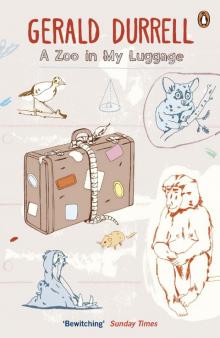 A Zoo in My Luggage
A Zoo in My Luggage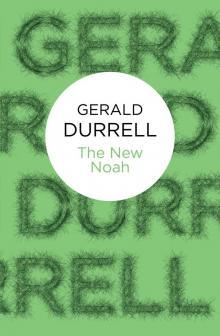 The New Noah
The New Noah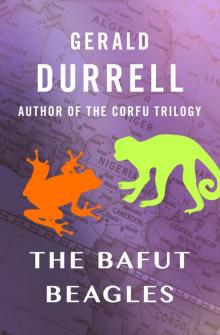 The Bafut Beagles
The Bafut Beagles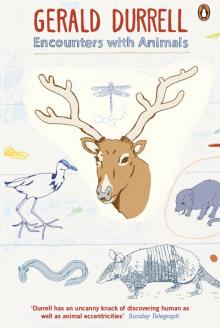 Encounters With Animals
Encounters With Animals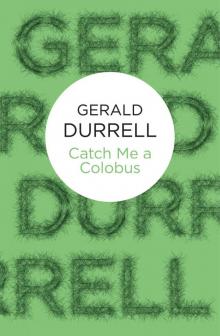 Catch Me a Colobus
Catch Me a Colobus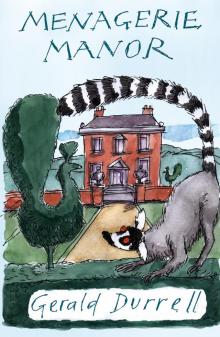 Menagerie Manor
Menagerie Manor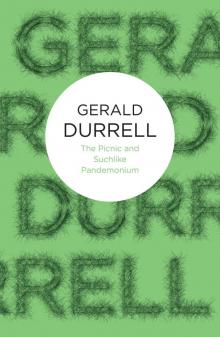 The Picnic and Suchlike Pandemonium
The Picnic and Suchlike Pandemonium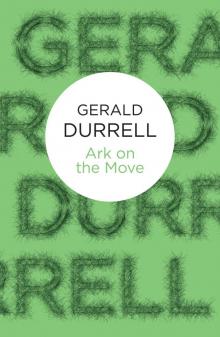 Ark on the Move
Ark on the Move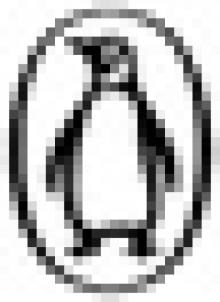 My Family and Other Animals
My Family and Other Animals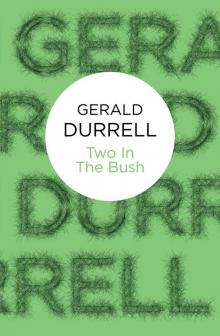 Two in the Bush (Bello)
Two in the Bush (Bello)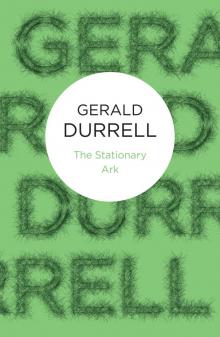 The Stationary Ark
The Stationary Ark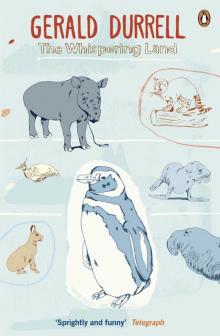 The Whispering Land
The Whispering Land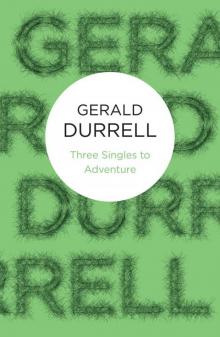 Three Singles to Adventure
Three Singles to Adventure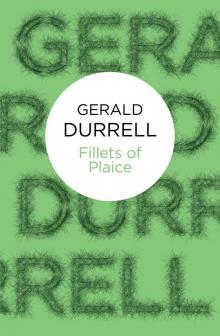 Fillets of Plaice
Fillets of Plaice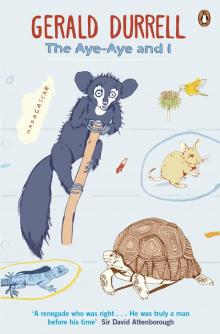 The Aye-Aye and I
The Aye-Aye and I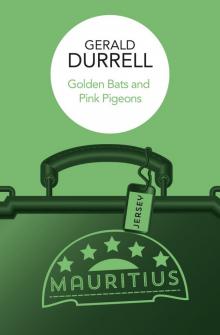 Golden Bats & Pink Pigeons
Golden Bats & Pink Pigeons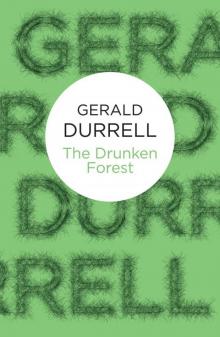 The Drunken Forest
The Drunken Forest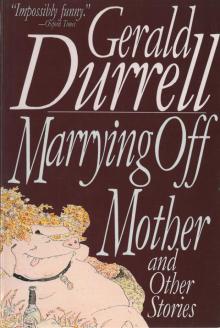 Marrying Off Mother: And Other Stories
Marrying Off Mother: And Other Stories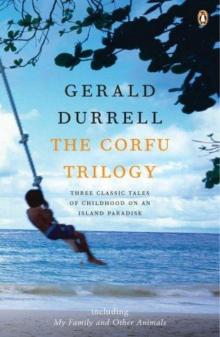 The Corfu Trilogy (the corfu trilogy)
The Corfu Trilogy (the corfu trilogy)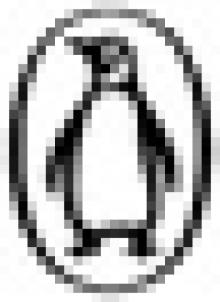 The Corfu Trilogy
The Corfu Trilogy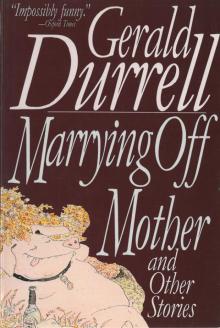 Marrying Off Mother
Marrying Off Mother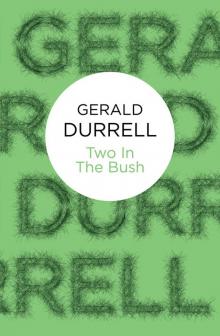 Two in the Bush
Two in the Bush